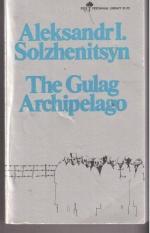|
This section contains 246 words (approx. 1 page at 400 words per page) |

|
Part 2, Chapter 1 Summary and Analysis
Through the late 19th century, prisoners go to Siberia by foot, horse cart, or third-class railway called Stolypins. They are ordinary passenger cars divided into nine compartments, four allotted to guards and five to prisoners. Gratings replace walls for easy inspection. With no exterior windows and a big sliding door, they look like baggage cars. Inmates eat preserved fish and bread rather than soup, causing intense thirst. Sometimes there are no rations, either because of accounting errors or because underfed guards "snag" rations. Zeks get so thirsty they will drink yellow, greasy water from the locomotive tender, sharing a common cup, with healthy inmates going first and those suffering tuberculosis and syphilis last. Withholding water also wards off toilet trips, which require two guards per prisoner, one at a time until all 120 have their turn (two hours). Sometimes, thieves...
(read more from the Part 2, Chapter 1 Summary)
|
This section contains 246 words (approx. 1 page at 400 words per page) |

|




